Tokuji Kobayashi
出生 : 1901-03-09, Okayama, Okayama Prefecture, Japan
死亡 : 1963-06-11
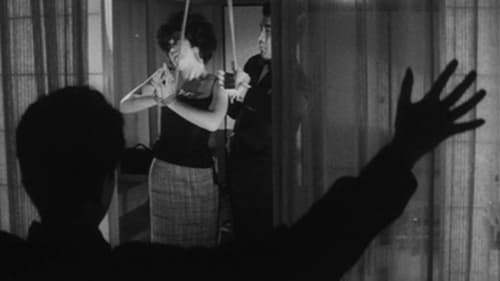
Old patient
While under sedation in a dentist's office, a young art student has sex fantasies about naked women, vampires and a beautiful patient he saw in the office.

Manao Horiuchi movie

Japanese comedy film.

The story is of two people. One is deaf, the other deaf and mute. They marry after meeting at a school reunion, and the film follows their trials and tribulations ... and joys.
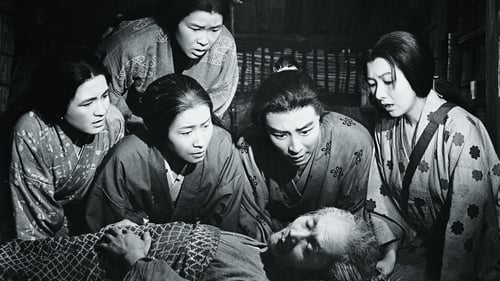
In a time of continuous civil wars ravaging the fields of feudal Japan, the eldest son of a very poor peasant family, living alongside the bridge over the Fuefuki river, decides to serve a warlord to escape his miserable condition, being soon followed by his younger brothers. Although not all the men of the family take this tragic path of death, women of the family will be doomed to endure the pain of loss during the next five generations.

Alongside Tokyo's Sumida River is a ragpickers' settlement known as Ant Village. One night, a young Catholic girl, Satoko Kitahara, who has been baptized under the name of Maria, comes to offer her services. However, Ant Village is not just an ordinary vagrants' community but a fine autonomous organization, and as the municipal authorities have long been demanding that the people of Ant Village leave the site, Satoko is utilized to publicize the Village and win public sympathy. While being utilized in this manner, Satoko is nevertheless glad to be able to help the people of Ant Village, especially the children, and when the summer vacation comes she decides to take the children on an excursion to Hakone. To raise funds for this purpose she becomes a rag-picker herself.
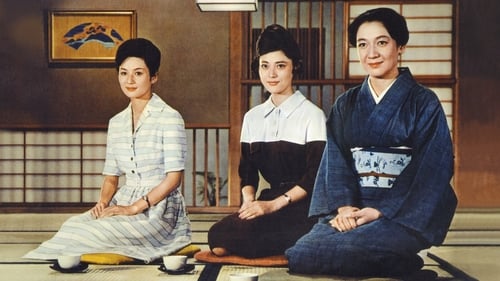
Schoolmate
A man clashes with his daughter over her choice of fiancé.

A masterpiece depicting the true feelings, grief and joy of a woman. An adaptation of the novel of the same name by Yasushi Inoue.
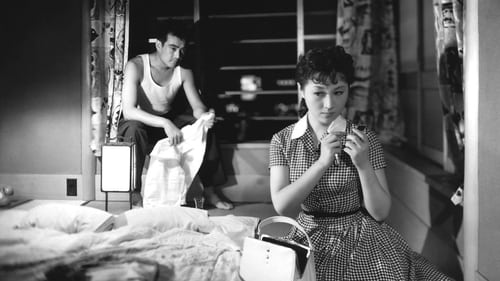
Laundry owner
東京の深川で2人組の犯人による質屋強盗殺人事件が発生。主犯は逮捕されたものの、共犯の石井は目下逃走中。彼が昔の恋人に会いたがっていたという主犯の証言をもとに、2人の刑事、柚木と下岡が、暑い夏のさなか、横浜駅から満員の夜行列車に乗り込み、九州の佐賀県まで出向くことに。彼らは、いまや人妻となっているさだ子という女性を見張るため、彼女の家の真向かいにある宿の2階の部屋に陣取り、辛抱強く張り込みを続ける。
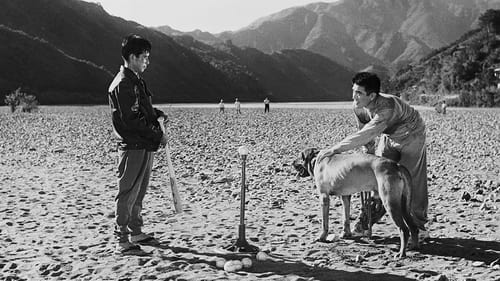
A talent scout moves sharply, dead-set on signing a promising athlete to the baseball team the Toyko Flowers.

Neighbour on the right, Mister
Ignoring the protests of his working-class mother, a young man becomes wrapped up in the world of delinquents and yakuza.

Old man Nomura

Nobuko's father

大石久子は昭和3年、新任教師として瀬戸内海にある小豆島の分校に赴任した。久子が受け持つことになった一年生は十二人で、みな澄んだ瞳をしていた。やがて久子は本校へ転任することになった。しかし貧しい村の教え子たちは、一人として望み通り進学することができなかった。戦争をはさんで島の分校に戻った久子は、そこでかつての教え子たちと再会する。

An adaptation of the Kawabata Yasunari short story.

「家族会議」の山ロ松三郎製作の春青メロドラマ。「沖縄健児隊」の沢村勉のオリジナル・シナリオから「処女雪」の原研吉が監督した。撮影は「朝霧(1953)」の森田俊保、音楽は「勢揃い 大江戸六人衆」の加藤光男。出演者は大船映画初出演の「花の生涯」の草苗光子、「蛮から社員」の三島耕、「家族会議」の月丘夢路、「青春三羽烏」の三橋達也などである。

Machiko Ujiie and Haruki Atomiya first meet and fall in love on Ginza’s Sukiyabashi Bridge during the Great Tokyo Air Raid in March 1945. Machiko and Haruki pledge to meet again at the bridge in six months but part without asking each other’s names.
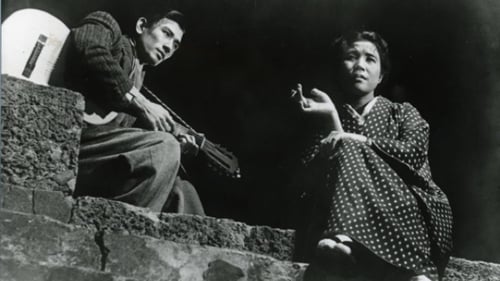
At the close of the war in Japan, a widowed mother makes every possible sacrifice to bring up her ungrateful son and daughter who are unimpressed with their poor standard of living at home. They gradually reject her in search of the material comforts that working as a maid cannot provide. The mother's despair becomes interminable.

Hiroo Ikeda movie

Inochi uruwashi

Asako works in a hostel for troubled young women. When a beautiful young girl is brought in one day after committing theft, Asako finds out from the older widow she works with that the new girl is undoubtedly her half-sister. When the younger sister suddenly flees on account of a misunderstanding, Asako makes up her mind to find the mother who deserted them both.

Wataru Naohiko who has the prosecutor general as his father became a young composer and its symphony "saint" invoked the world echoed. But his disciple Uchiyama and his best friend prosecutor Daisuke Toki accused his music as a sesame of pause-only technique, not a truly heart-hungry art.
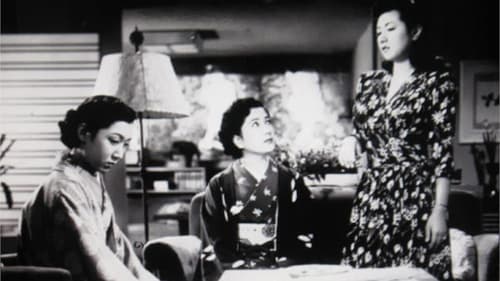
Nomura
谷崎潤一郎の同名小説を八住利雄が脚色し阿部豊が監督した文芸作。大阪を舞台に美しい四姉妹が織りなす物語。『細雪』はこの後、島耕二(1959年)と市川崑(1983年)により映画化された。四女の妙子を演じた高峰秀子が抜群の演技力を見せる。洪水のシーンに特撮が使われ、豪華な衣装が多数用意されるなど、当時としては破格の製作費がかけられたという。 昭和初期の蒔岡家。長女の鶴子は夫と共に古い暖簾を守り、次女の幸子は婿養子を迎えて芦屋に分家、三女の雪子は幸子夫妻から縁談を持ちかけられるが上手くいかない。四女の妙子は恋仲になったカメラマンが死亡したことから、自暴自棄になってしまう…。

Evangelist for 'Oterashi'
映画『窓から飛び出せ』は、二組の家族の交流を描いた心温まる作品です。徳山周介(大日方傳)は農業と畜産業を営み、父の理太郎(汐見洋)、弟の勇二(小林桂樹)、妻の藤子(轟夕起子)、4人の子供(うち3人が大日方の息子と娘2人)の8人という大家族で暮らしていました。隣家の藤枝家は、船長だった夫を海での遭難事故で亡くした千栄子(岡村文子)と娘の茉利子(香川京子)、足に障がいがありリハビリを続ける息子の道夫(大日方の息子)の3人家族でした。その徳山家と藤枝家の交流を通して、家族の大切さ、人の優しさが画面いっぱいに映し出されます。

Mr. Fugu
美空ひばりの松竹映画初出演作。唄と踊りで綴る奇想天外!ファンタジーオペレッタ!!
ひばりがかわいらしい河童ブギの少女に扮し注目を浴びた。佐々木康監督も「この子は天才だ!」とその才能に驚嘆。夢の不夜城に咲く恋と河童と乙姫様のロマンス。竜宮城を舞台に、松竹の歌姫が総出演して華を競う、歌と踊りと笑いで綴る一大海底グランドショウ。
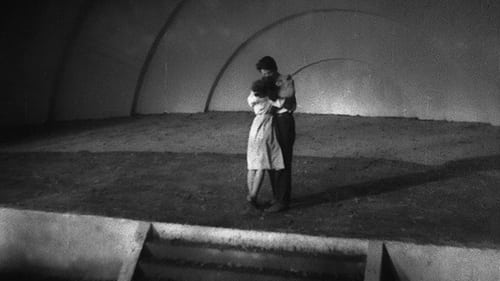
Overweight apartment receptionist
楽しくなるはずの日曜日のデートでことごとく厳しい現実に遭遇して落ち込む恋人たちが、最後にはそれでも明るい未来に希望を抱き絆を強める姿を巨匠・黒澤明監督が描いた瑞々しい感動編。とある日曜日にデートを計画した雄造と昌子。でも、手持ちのお金はたった35円。お金がないなりになんとか工夫して楽しいデートをと考えるのだが、そんな二人に容赦ない現実が待っていた。すっかり惨めな気持ちになって帰路につく二人だったが…。
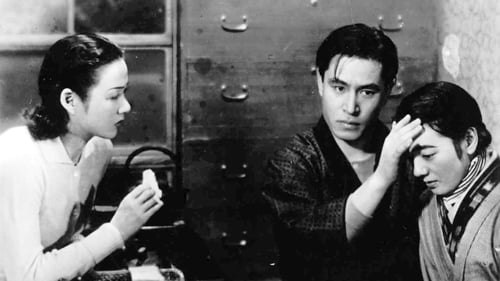
Eiji Sawada
A man who works late hours at a deadening job lives together with his wife and his younger sister. The younger sister's a modern girl who's starting to receive romantic attention from one of her co-workers.

Approaching their graduation ceremony, Saegusa, Sanae, and their classmates go on an overnight trip to Hakone with their teacher Ms. Kawahara, who will soon leave school. They thank her doing so and go on their respective paths, ending soon their student life.

Shigeo is an aspiring writer living with his girl friend Minako and hoping for success and a better tomorrow every day. Both live on what Minako earns from working in a café. Shigeo is not happy with the situation and neither is his family who do not approve of Minako. Especially his uncle tries to convince him to leave Minako, even using his influence behind the scenes. Things start to change when Shigeo's sister pays the young couple a visit, being the first member of Shigeo's family to actually get to know Minako in person.

Perfumer
Pre-war Asakusa was a riotous district of cabarets, dance-halls and brothels - a striking backdrop for Shimazu's story of innocence and experience. Pretty, young Reiko is the new dancer in an infamous theatre troupe, and her fellow performers try to protect her virtue in a land of vice. Meanwhile, an ageing actor wants to be a hero off stage as well as on, and the troupe matriarch Marie has to keep them all together.
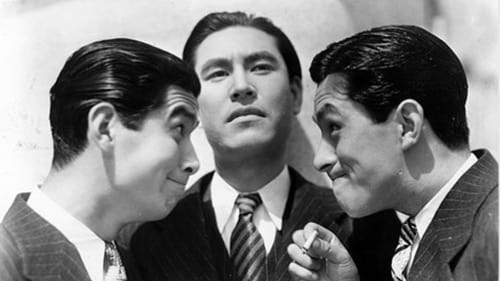
An examinee
Three men vying for the same job end up chasing the same girl in this comedy-drama from noted Japanese director Yasujiro Shimazu.

Patient A
Kinuyo is a daughter of doctor of Chinese medicine, and Yasuo is a son of surgeon. Their families always fight like cat and dog. This relationship is ancestral. Although Kinuyo and Yasuo love each other, they have different thoughts toward treatments.

A musical film made for the inauguration of Shochiku's Ofuna Studio, with an all-star cast of the era.

A student
Otoku asks her brother Bunkichi to speak with her son Seiichi, a young man for whom sacrificed everything but who now seems to be headed for a wastrel life. Bunkichi admonishes the boy to study harder, but it seems his uncle's advice may already be too late.

Clerk A
A melodrama about a businessman's relations with the three women in his life.
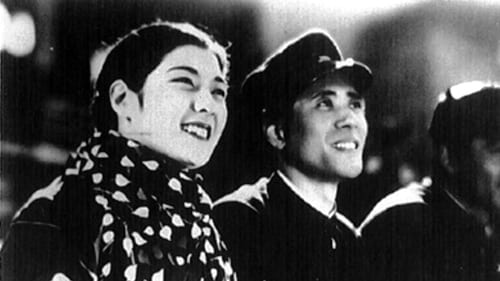
Nishida
In a Tokyo boarding house a group of students and recent graduates struggle to complete their studies and find jobs. Considered a lost film.
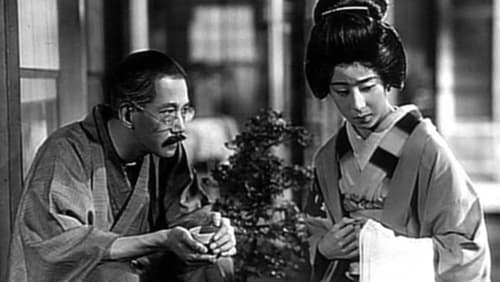
Shunkichi Kuriyama
Family drama. A middle-aged father has just married off his third daughter, but still has his nine year old son to raise whom he resents as he was unwanted. (British Film Institute)

Bridegroom's friend
This pair of gentle yet witty and inventive comedies from the director of The Neighbour's Wife and Mine typify both the formal experimentation of early Japanese sound cinema and the social milieux that Shochiku tended to depict. 'Virtually plotless, and feeling more like comic sketches than fully developed stories,' writes Arthur Nolletti, Jr, 'these light comedies, or farces, take a wholly trivial matter (often a socially embarrassing situation) and use it as a springboard for a succession of gags.' Much of the films' distinction comes from the wit of Gosho's direction, the imaginative use of the new sound technology and the charm of the acting, particularly of the heroines (Kinuyo Tanaka in Bride; Hiroko Kawasaki in Groom). Yet in both films, Gosho finds room for some shrewd observation of character and environment, subtly exploring the values and assumptions of the suburban petit bourgeoisie.

Сэнко
Jyuta, an honest owner of a taxi company, has a younger half-brother who is involved in the yakuza world and doesn’t get along well with his mother. Jyuta tries to correct him…

Living Things a film by Heinosuke Gosho

Sumida
The poor novelist Yamamoto is writing his novel, determined and with a headband around his head. With him, the novelist who is always in trouble paying his bills, is the girl Saya who becomes the model for his novel. Saya however is in love with a young driver. When he is forced to move into a spa town as the result of the jealousy of another man Saya is terribly sad. But with the help of Yamamoto the driver's rival can be revealed and Saya can finally be with her beloved.

Konishi
Heinosuke Gosho evokes in this film the family conflicts engendered by the eternal problem of a father who projects his professional desires on the life of his son. The sister Machiko is the essential link that will allow everyone to apologize to each other and achieve reconciliation
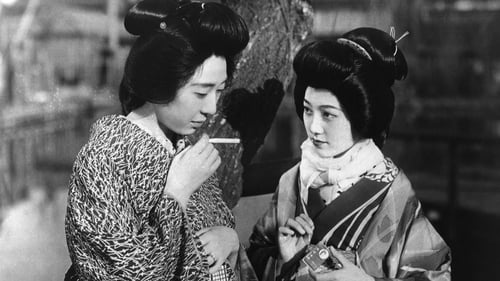
Guest
An aging geisha, whose angry teenage son is ashamed of her profession, works alongside a young geisha, resentful of her family for forcing her into a life of ignominy.

A young couple is harrased by an uncle.

Eikichi, brother of Kaoru
"The Dancing Girl of Izu" tells of the story between a young male student who is touring the Izu Peninsula and a family of traveling dancers he meets there, including their youngest girl. The student finds the naïve girl attractive even though he eventually has to part with the family after spending memorable time together.

Komura
This pair of gentle yet witty and inventive comedies from the director of The Neighbour's Wife and Mine typify both the formal experimentation of early Japanese sound cinema and the social milieux that Shochiku tended to depict. 'Virtually plotless, and feeling more like comic sketches than fully developed stories,' writes Arthur Nolletti, Jr, 'these light comedies, or farces, take a wholly trivial matter (often a socially embarrassing situation) and use it as a springboard for a succession of gags.' Much of the films' distinction comes from the wit of Gosho's direction, the imaginative use of the new sound technology and the charm of the acting, particularly of the heroines (Kinuyo Tanaka in Bride; Hiroko Kawasaki in Groom). Yet in both films, Gosho finds room for some shrewd observation of character and environment, subtly exploring the values and assumptions of the suburban petit bourgeoisie.



Genzaemon Tonomura
This 1932 adaptation is the earliest sound version of the ever-popular and much-filmed Chushingura story of the loyal 47 retainers who avenged their feudal lord after he was obliged to commit hara-kiri due to the machinations of a villainous courtier. As the first sound version of the classic narrative, the film was something of an event, and employed a stellar cast, who give a roster of memorable performances. Director Teinosuke Kinugasa was primarily a specialist in jidai-geki (period films), such as the internationally celebrated Gate of Hell (Jigokumon, 1953), and although he is now most famous as the maker of the avant-garde silent films A Page of Madness (Kurutta ichipeji, 1926) and Crossroads (Jujiro, 1928), Chushingura is in fact more typical of his output than those experimental works. The film ranked third in that year’s Kinema Junpo critics’ poll, and Joseph Anderson and Donald Richie noted that 'not only the sound but the quick cutting was admired by many critics.

A playwright moves to a rural neighborhood to avoid the distractions of the city, but he discovers there are plenty of ways to get sidetracked in his new home, too.

The love of an older sister who worked as a geisha but decided to open a bar under the auspices of a millionaire

Michiko gets pregnant after a rape. She marries a boring business partner of her father to avoid the shame. Later she meets the rapist again who is now a union leader in opposition of her husband.

Gentleman

Satomi

A farmer’s boy, obsessed with his balsa-and-paper flying models and with dreams of real aircraft, develops a friendship with the daughter of the local squire, who introduces the lad to her pilot brother and his flying officer friends; through hard work, and despite the handicap of a lowly class status, he eventually succeeds in qualifying as a pilot and joining the air force.

Tanjiro
A young man falls for one of the geisha working in the house where he lives. However, the romance doesn't find favour with his father or current girlfriend. Considered to be a lost film.

A young man torn between love and friendship.

Debut film by Hiroshi Shimizu.







































